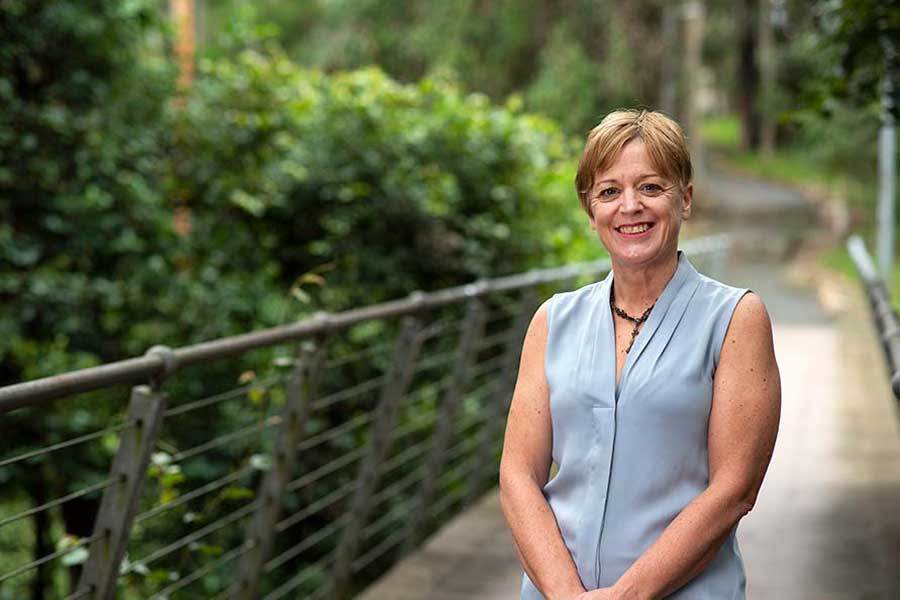Researcher Highlights
Fostering inclusive education
Angela Page
Dr Angela Page is an education researcher who is helping to develop Australasian and Pacific nations classrooms to become more inclusive.

Pacific Focus
Dr Page is currently leading a project called “Inclusive Education for Teachers and Communities in the Pacific”, which is the result of many years’ experience as a Special Education Teacher and Inclusive Education Advisor in the region. Dr Page travels to Vanuatu and other Pacific countries to assist in the development of knowledge and capacity for teachers assisting students with disabilities.
This project builds on the work she completed in Nauru, where she worked in partnership with the education department assisting with the professional development of inclusive education for teachers.
She has also recently completed a project focusing on the teacher’s role in addressing physical and relational aggression in the classroom in the Pacific region. “It is important to talk about positive classroom behaviour management strategies in each situationally specific context and doing so can have a significant effect in a short time.”
Dr Page has conducted teacher workshops in the region to help schools build systems and policies around classroom management.
“Inclusive education and associated positive classroom management practices are not new in the Pacific but through this project we are aiming to enrich it. Inclusive education is always about a journey; even in Australia we have challenges we face in our schools. In Pacific nations there are different cultures and contexts to consider, so we will be working alongside the teachers to make improvements to and contextualise a local and sustainable inclusive education,” Dr Page commented.
Innovative and flexible learning environments
You may have noticed that many new school buildings look quite different to the traditional classroom. These big open spaces with a variety of working areas and seating options are the result of a government initiative that promotes new classroom designs that are built to meet the needs of 21st century learners. Dr Page will be researching what challenges as well as benefits are afforded within those learning spaces to children with disabilities and how they interact with those spaces.
“Innovative and flexible learning environments are gaining a lot of traction and one of the pillars of the initiative is inclusivity. Through this project we will test just how inclusive the spaces are. We’ll look at the levels of noise and the fact that the layout of the space is flexible and moveable and how that affects students with disabilities,” Dr Page said.
“We are starting to see some interesting things around how students with ADHD and Autism interact with the space. Some of the challenging behaviours they traditionally present are not happening in these spaces as the students can be freer in the classroom and are not as restricted in how they use the space,” Dr Page observed.
Dr Page will be visiting schools to observe students’ use of innovative and flexible learning environments and will interview students and teachers in Australia and New Zealand.
Teaching inclusive education
Teaching the next generation to become quality inclusive teachers is a vital role for the university. Dr Page is committed to and passionate about this goal. She currently teaches into the Master of Special and Inclusive Education degree within the School of Education. “I am interested in teaching and learning approaches that mirror contemporary pedagogies that have been shown impact positively on student learning, such as inquiry learning, encouraging active student participation, and authentic assessment. I am also cognizant of the ever-changing perspectives in Inclusive Education within an international context that need to be reflected in the content of what we teach.”
The University of Newcastle acknowledges the traditional custodians of the lands within our footprint areas: Awabakal, Darkinjung, Biripai, Worimi, Wonnarua, and Eora Nations. We also pay respect to the wisdom of our Elders past and present.
